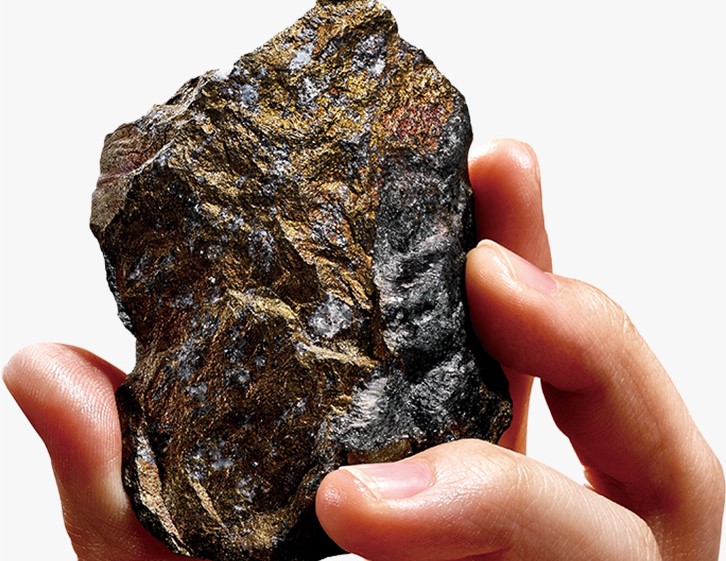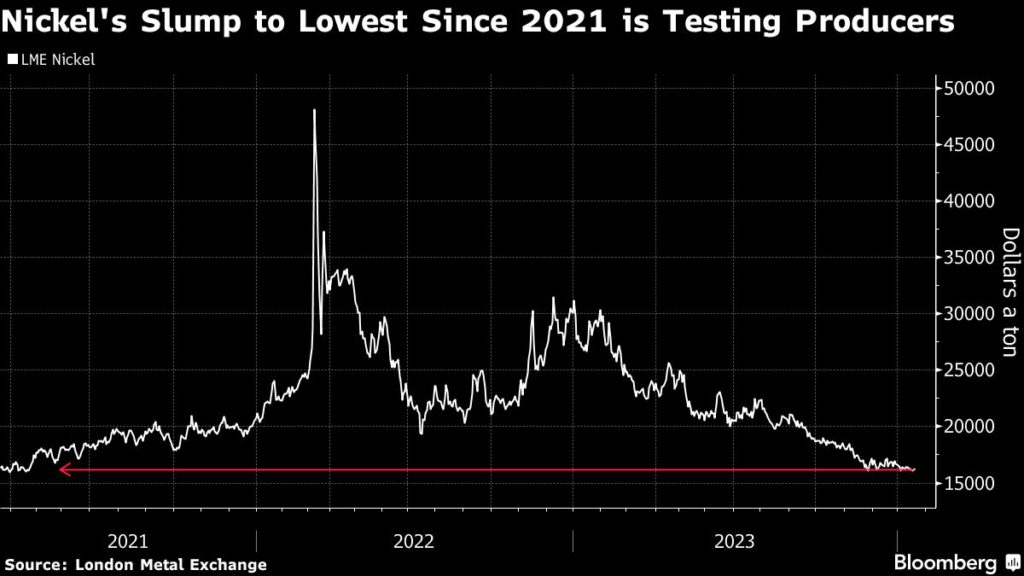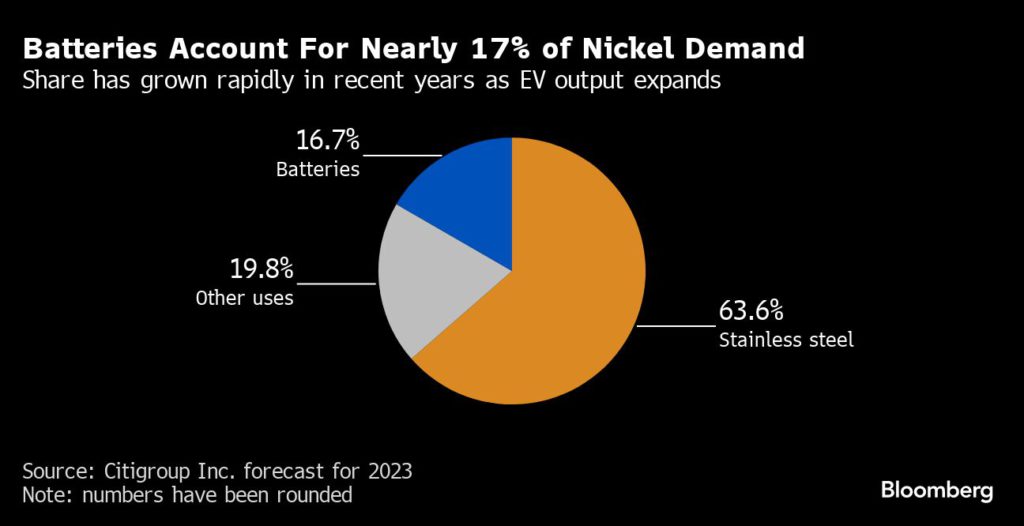Nickel price crash seen extending Indonesia’s grip on supply

A prolonged slump in nickel prices is stress-testing producers worldwide, raising the prospect of sweeping mine closures that will deepen Indonesia’s dominance of global supply.
The metal used in stainless steel and electric-vehicle batteries is down more than 40% from a year ago amid a growing global glut. That’s piling pressure on higher-cost operations and could pose the greatest risk to new projects outside Indonesia.
So far, the main casualties are in Australia. On Monday, billionaire Andrew Forrest’s nickel producer Wyloo Metals Pty Ltd. said it’s shutting down mines and BHP Group Ltd. said it’s partly closing a processing plant. BHP had warned last week on prospects for its nickel business, while First Quantum Minerals Ltd. suspended a mine.

But production in Indonesia — which already accounts for half of global supply — may prove more resistant to output cuts. The Southeast Asian nation has emerged as a global nickel hub after billions of dollars of investment in efficient plants that benefit from inexpensive labor, cheap power and readily available raw materials.
“Indonesian projects are more flexible in absorbing the impacts of lower nickel prices,” said Allan Ray Restauro, an analyst at BloombergNEF. That means overall global supply will keep rising despite output curbs elsewhere, he said.
Low prices
The flood of new supply from Indonesia in the past two years has overwhelmed demand at a time when metals markets are under pressure from a sputtering global economy. For nickel, softer demand growth from the EV sector is also a headwind, and prices have recently traded near $16,000 a ton, close to their lowest level since 2021.
Mallee Resources Ltd’s Avebury mine in Tasmania, and a project by IGO Ltd. are also at risk, according to BloombergNEF. Calls to the two firms were not immediately answered.
Parts of BHP’s Kambalda concentrator will be suspended from June because they can no longer receive ore supply from Wyloo’s halted mines, BHP said. The world’s biggest miner is reviewing its Nickel West business, and last week warned it may be forced to write down the value of the assets.
First Quantum said it would suspend its Ravensthorpe nickel facility in Western Australia and cut a third of its workforce.
Citigroup Inc. sees nickel falling to $15,500 a ton in the next three months. The bank recently slashed its forecast for average prices this quarter to $16,000 a ton, from $18,000 a ton.
To be sure, Indonesia has its own uncertainties. A December accident that killed 21 people has triggered calls in the country for tighter regulation of the nickel industry ahead of a presidential election next month. One of the three candidates to become vice president criticized how the incumbent government has managed the sector during a televised debate on Sunday.
Testing times
The announcements by BHP and First Quantum add to other signs of stress. Glencore said in September that it will only keep funding the struggling Koniambo Nickel mine until next month. Nickel plants in the French territory of New Caledonia are seen at risk of closure, the French government said last year.
“A lot of supply is still coming in from Indonesia, and we will need nickel prices to go lower to constrain supply growth in Indonesia,” said Nikhil Shah, principal analyst for base metals at CRU Group.

Nickel’s woes reflect the dynamics of other battery-materials markets, which have seen prices sink after surprisingly strong growth in supply. Demand for nickel and cobalt have suffered too as EV makers adopt types of batteries that don’t use either of them.
Despite the potential for further cuts in mine supply, the market will remain in surplus this year, given higher primary nickel output coming from Indonesia and China, said Jason Sappor, senior analyst at S&P Global Commodity Insights.
“We expect nickel prices to remain subdued this year,” Sappor said.
(By Annie Lee)
Read More: Australian tycoon Forrest shuts nickel mines after prices crash
{{ commodity.name }}
{{ post.title }}
{{ post.date }}




Comments